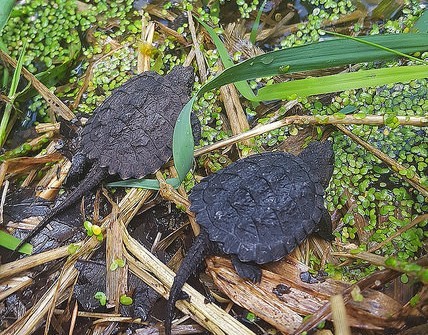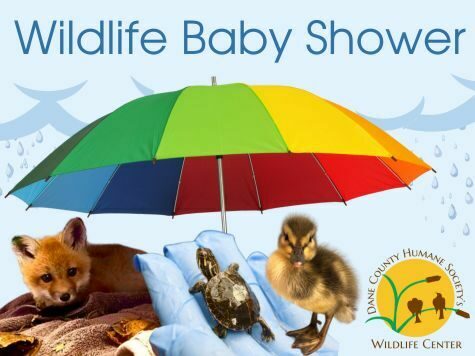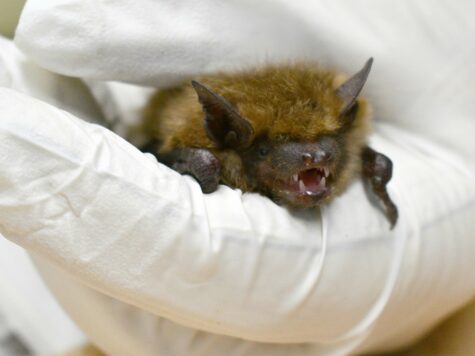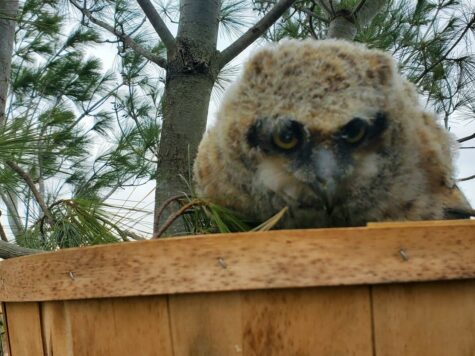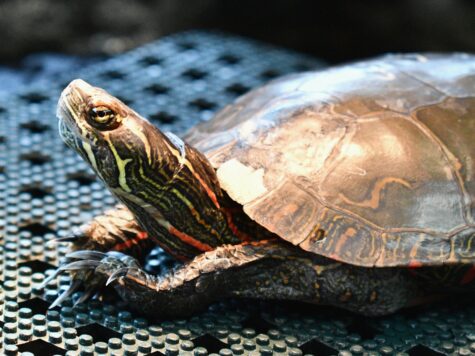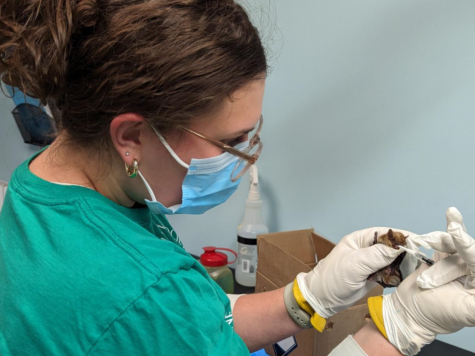Turtles are some of the slowest moving creatures on Earth, but they have quickly become a major concern for the Wildlife Center at the Dane County Humane Society.
After a slow year in 2020 when automobile traffic diminished due to the COVID-19 pandemic, the number of injured turtles treated by the Wildlife Center is starting to pick up.
According to Paige Pederson, licensed wildlife rehabilitator at DCHS, 11 turtles have received treatment so far this spring, and the numbers should rise in May and June when vehicular traffic increases and more turtles are seen in public. About 100 turtles receive treatment at the Wildlife Center in an average year, and they are often turned in by concerned citizens.
“Turtles are often hit by cars while crossing roads within their home territories, traveling to look for mates, or moving to habitat to lay eggs,” Pederson said.
With hopes of reducing auto versus turtle collisions, the Wildlife Center works with the Wisconsin Turtle Conservation Program to identify areas where turtles are frequently seen.
“This program maps road collisions and helps inform future transportation projects,” Pederson said. “The public can report turtle sightings as well.”
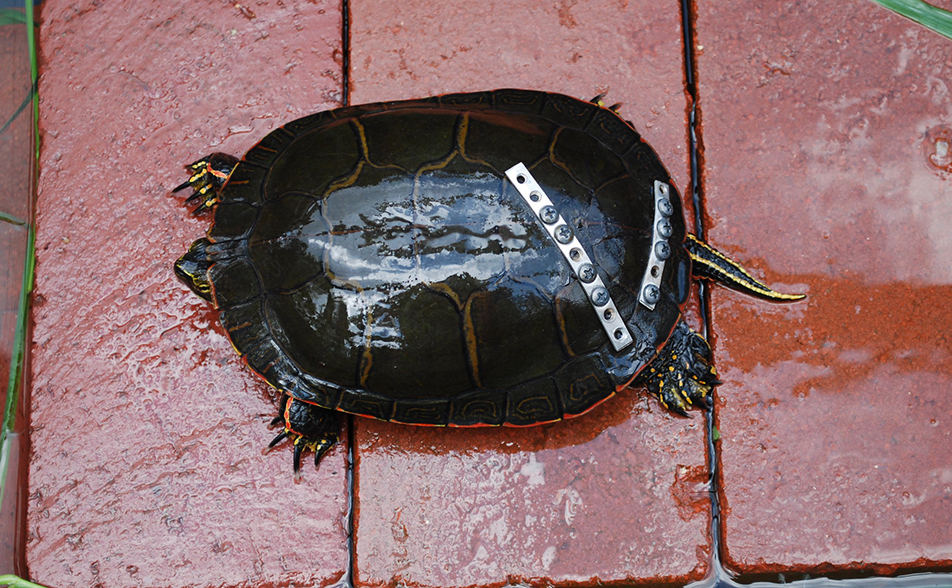
Shell fractures
Turtles hit by cars often suffer fractures to one of the three parts of their shells: the carapace at the top of the shell, the plastron at the bottom of the shell and the bridge, which connects the carapace and the plastron. The Wildlife Center has also seen its share of injuries to turtles caused by fish hooks.
“These turtles may come in with a fish hook entanglement as the primary injury, often hooked in the mouth or throat,” Pederson said. “And we also see fish hooks that a turtle has had to live with for a longer period of time.”
Pederson encourages people who fish to properly discard their fishing tackle to reduce injuries to turtles and other wildlife.
After completing rehabilitation, turtles are released in the area of their natural habitat.
“It is vital that we return reptiles right to their home territories. We appreciate detailed notes from the finder to help us find the exact body of water or marshland where each individual turtle lived,” Pederson said. “When fully healed, our dedicated volunteers take that turtle right back to the water.”
So, if you are driving and notice a turtle slowly trying to cross the road, what should you do to make sure it doesn’t get hurt? Pederson encourages motorists to move the turtle across the road in the direction it was going, even if it is moving away from water.
“Turtles have a high fidelity to their home territories and know where they want to go,” she said. “If you relocate a turtle to another habitat, it will continue to wander and potentially cross more roadways until it gets back to where it intended to be.
“If a turtle is moving away from a water source it may be a female looking for a spot to dig a nest and lay eggs or a male looking for a new mate,” Pederson said. “Please help them safely cross the road and continue on their journey.”
If you notice any injuries or blood, you should call the Wildlife Center to seek advice. Learn more about how to safely move a turtle across the road.
